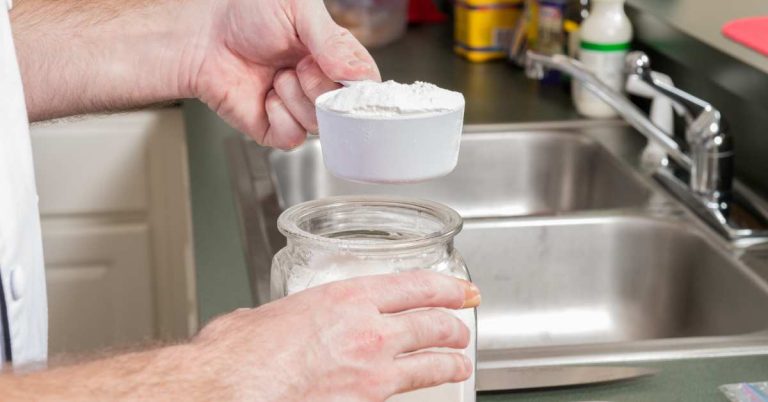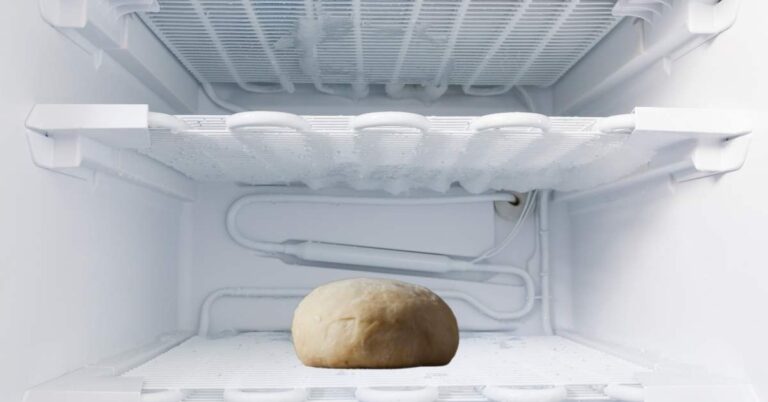How Do You Properly Store Poolish Pizza Dough?
Storing poolish pizza dough correctly is crucial for maintaining its quality. After mixing, cover the poolish and let it ferment at room temperature for 12-14 hours. If not used immediately, it can be refrigerated for up to 3 days. Refrigeration slows down the fermentation process, preserving the dough’s flavor and leavening power until you’re ready to bake.
When you make pizza at home, you want it to taste just like the delicious ones from your favorite pizza place. One secret to achieving that is using the right kind of dough. But, once you’ve made your dough, knowing how to store it properly is crucial to keep its quality. Let’s dive into how you can store poolish pizza dough the right way.

Understanding Poolish Pizza Dough
First off, what is poolish pizza dough? Poolish is a type of pre-fermentation used in baking that’s quite wet, made with equal parts flour and water by weight, and a tiny bit of yeast. This mixture sits and ferments for several hours or even days. Using poolish in your pizza dough makes your pizza crust light, airy, and full of flavor.
There are many benefits to using poolish in pizza dough. It not only improves the texture and taste of your pizza crust but also makes the dough easier to shape. Plus, the long fermentation process helps break down the gluten, making it easier to digest.
Preparation Before Storage
Before you think about storing your dough, there are a few final steps you need to take. After making your poolish pizza dough, let it go through its initial fermentation. This step is crucial because it starts the flavor and texture development process.
The temperature during this initial fermentation is super important. If it’s too cold, the dough won’t ferment properly. If it’s too warm, it might over-ferment. Finding that sweet spot is key to a perfect dough.
Short-Term Storage Solutions
If you’re not planning to use your poolish pizza dough right away but will within a few days, refrigerating it is your best bet. Keeping the dough in the fridge slows down the fermentation process, which means your dough will still be good to use in a couple of days.
For refrigerating, you’ll want to keep your dough at an optimal temperature, usually around 40°F (4°C). It’s also important to store it in the right container. Airtight containers or plastic bags that are slightly inflated to allow some room for the dough to expand are great choices. Generally, you can store your dough in the fridge for up to 3 days without losing its quality.
Transitioning to Long-Term Storage
What if you’ve made a lot of dough or you’re planning ahead? Freezing is a great option for long-term storage. But, you can’t just throw the dough in the freezer. You need to prepare it first.
Preparing dough for the freezer involves making sure it’s tightly sealed in a freezer-safe bag or container. This helps prevent freezer burn and keeps the dough from absorbing any funky flavors from your freezer. Remember, the way you store your dough can make a big difference in how your pizza turns out.
| Method | Duration | Temperature | Tips |
|---|---|---|---|
| Refrigeration | 1-3 days | 4°C (39°F) | Cover tightly with plastic wrap to prevent drying. |
| Freezing | Up to 1 month | -18°C (0°F) | Freeze in airtight containers or freezer bags. Thaw in the refrigerator before use. |
| Cold Room/Cellar | 12-24 hours | About 10°C (50°F) | Ideal for short-term storage, maintain humidity control to prevent drying. |
Effective Freezing Techniques
Freezing poolish pizza dough the right way is important. You should wrap the dough tightly in plastic wrap. This keeps the air out and stops freezer burn. Then, put it in a freezer bag for extra protection. When you want to use the dough, thaw it in the fridge for about 24 hours. This slow thaw helps keep the dough’s quality.
Reviving Dough Post-Thaw
After your dough has thawed, it’s time to get it ready for pizza making. First, let the dough sit at room temperature for about 30 minutes. This makes the dough easier to shape. Sometimes, the dough might need a little more flour if it’s too sticky. But, be careful not to add too much. You want to keep the dough soft.
Tips for Monitoring Dough Quality
It’s important to know if your dough is still good to use. If the dough smells sour or has a strange color, it might be over-fermented or spoiled. Good dough should be soft and have a slight yeast smell. Before you use the dough, check these things to make sure it’s still good.
Final Thoughts
Remember, how you store poolish pizza dough affects your pizza’s quality. Freezing the dough the right way and knowing how to bring it back to life are key. Always check your dough before using it to make sure it’s in good condition. Following these tips will help you make great pizza every time.






